
A case in Switzerland, where a Latvian obsessed with the ideology of the aggressor state attacked Ukrainians, has caused a wide resonance. This raises the question: if Russian occupiers invade Latvia, how will those susceptible to Russian propaganda behave? Will they join the occupiers? And what will Latvians do? Will they flee? Will they defend their homeland? These questions have been posed by well-known Latvian journalist Elita Veidemane from the portal nra.lv.
What are the current public sentiments regarding a possible course of action in the hypothetical hour X? This is reflected upon by former Deputy Head of the Bureau for the Protection of Sate (formerly the Security Service) Didzis Šmitiņš, former State Secretary of the Ministry of the Interior Andris Staris, psychotherapist Viesturs Rudzītis, and political scientist, former Minister of Defense Artis Pabriks.
There Will Be Few Collaborators, But They Will Exist
"I want to believe that Latvians will not be cowards," says Didzis Šmitiņš. "For the last twenty years, I have lived among my circle of people, and I currently do not have a deep understanding of the sentiments of the entire society. But I am confident in those I work with: they will stand and fall for Latvia. I am in the National Guard, and we will not retreat an inch. No compromises, only struggle."
Former State Secretary of the Ministry of the Interior Andris Staris, whom many consider one of the most informed people in the country, responds to the question about the reaction of Latvian society to a possible invasion: "I would like to hope that there will be no Latvians who will side with the occupiers, but unfortunately, there will be some. I won't say what percentage, but there will be. However, speaking about the invasion, a realistic optimist awakens in me: there will be no invasion."
Staris admits that in the event of an attack, there will be people who, not out of conviction but in an attempt to save their lives, will try to collaborate with the invaders.
"I think mainly this could be representatives of the generation that lived during the Soviet Union and still grumbles that 'everything was better then' — free medicine, cheap electricity, affordable housing, and communication. As for the youth, I have a different opinion here," says Staris. "My granddaughter is 21 years old, and in her circle, there is more patriotism than in the older generation."
He adds: "I want to be wrong in my assessment of the number of collaborators, but it is clear that they will exist."
Some Journalists Suddenly Became Too Pro-Russian
Psychotherapist Viesturs Rudzītis is skeptical: "Look at some of your journalist colleagues. Some have suddenly become so pro-Russian that it is frightening. This is evident both on social media and in their articles. How is this even possible? This is not only among journalists. It is visible in society. What is this — an illusory sense of security?"
He recalls the beginning of the war in Ukraine: "The Russians thought they had bought everyone, and that it would be easy to conquer Ukraine. But the Ukrainians turned out to be incorruptible. I would like Latvia to be the same. But I am more worried about the younger generation. I am troubled that there are such 'idiots' who attend rallies in support of the Istanbul Convention. This is a result of the degradation of the family. In my family, such 'idiots' could not have grown up. All we could do — we did. I hope it is the same in other families."
What Example Will Leaders Set?
Former Minister of Defense, political scientist, Doctor of Political Science Artis Pabriks: "How will Latvians behave in the hypothetical hour X? The main thing is what example the leaders of the country will set. This will determine the behavior of the people. I think state leaders will possess common sense. I believe the current situation is better than in 1939 and 1940. In my opinion, the reaction will be adequate."
Pabriks emphasizes that much depends on whether people in leadership positions are competent enough and capable of making the right decisions.
"Of course, it may happen that some positions will be occupied by people without sufficient experience. When talking about hour X, it is important to sense the crisis in time and respond correctly. One can evade such an invasion, but it depends on experience, knowledge, and political intuition. One can, of course, dismiss it: let’s wait and see if it passes... But everything is actually related to the readiness of our army and political elite — including in matters of preparation, procurement, ammunition, and resilience," says Pabriks.
He believes the reaction will be correct, but the question is whether it will be timely.
He is convinced that there will be collaborators in Latvia — including among Latvians: "There have always been such people, and there will be. But they must understand that they can be identified and neutralized. And it is clear that they will gain nothing because they themselves will suffer from Russian military aggression."
Pabriks admits that he is a bit of a pessimist: "This is not just a Latvian problem. Everything is happening in a Western political environment that is becoming increasingly fragmented and leftist. When I see these loudmouths in Latvia defending migrants, I am alarmed that more and more voters are supporting them. These are not the people who will make the right decisions in time. I am also frightened by the inability of many of our allies to see the obvious. How many drone detectors do you have? How many drone pilots? How many people know how to fight in a Ukrainian manner, rather than by the templates of World War II?" Pabriks emphasizes: "Our own homework is also not done. We are stalling, dealing with secondary matters."
We Need to Identify Before Hour X
Veidemane reminds us of what happened in 1940, namely: on June 16, the Latvian government received an ultimatum from the USSR, to which it had to respond within six hours. The Soviet Union accused Latvia of violating the mutual assistance treaty of 1939, demanded the immediate formation of a new government, and the unconditional entry of Soviet troops into Latvia to "ensure compliance with the treaty." The Latvian government naively hoped to avoid bloodshed and, considering recent events — the invasion of Soviet troops into Lithuania and the killings of border guards on the Latvian border — ordered its army to greet the red occupiers as an army of a friendly state...
On June 17, the USSR fully occupied Latvia. Estonia was also occupied on the same day. In the evening of June 17, the country's president Kārlis Ulmanis addressed the Latvian people on the radio: "I will remain in my place, and you stay in yours."
Everything happened swiftly. Most residents of Latvia simply did not understand what was happening. To establish the "necessary order," all internal affairs institutions were occupied by communists, Leninists, and Marxists. People's writer Vilis Lācis was appointed Minister of Internal Affairs.
In the declared "elections to the People's Saeima," there was only one list — the "Labor People's Block." Before these "elections," social democrat Bruno Kalniņš spoke on the radio, stating that those who do not participate in the elections or strike candidates from the block will be considered traitors to the people...
There were many collaborators, the journalist reminds us. But it is important to distinguish collaboration — conscious cooperation with the occupying power for ideological, selfish, or other reasons — from collaboration that people were forced into. For example, in Latvia in 1940, when the Soviet occupation began, the Russians claimed that the Latvian state continued to function. Most people continued to work where they had before. After all, one had to survive somehow, and it is unlikely they can be blamed for that.
Collaboration could also be related to attempts to preserve something in the country that could still be preserved — not to surrender but to try to serve the new power in hopes of realizing their ideological goals. Of course, for some collaborators, the goal was profit and fame.
Today, everything may be different, but even now — before hour X — it is necessary to very carefully try to identify these potential collaborators, concludes Elita Veidemane.

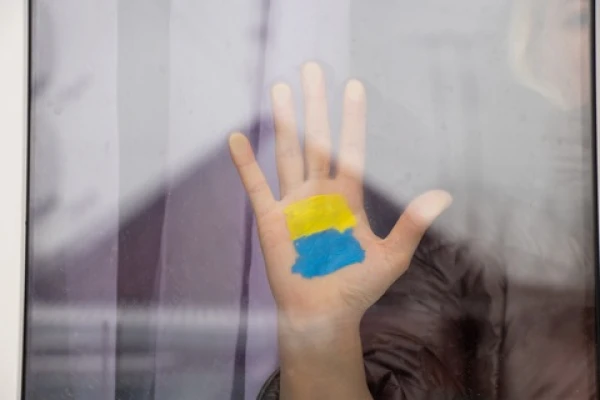


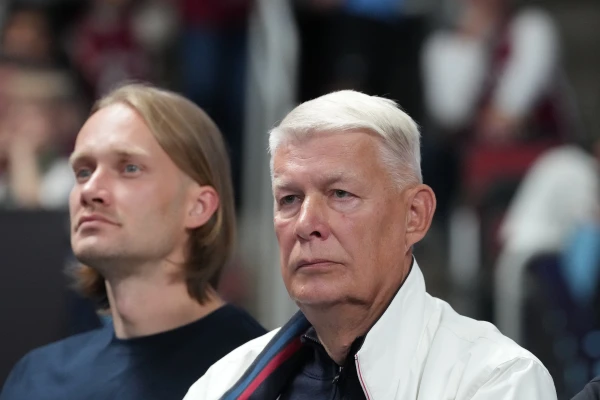
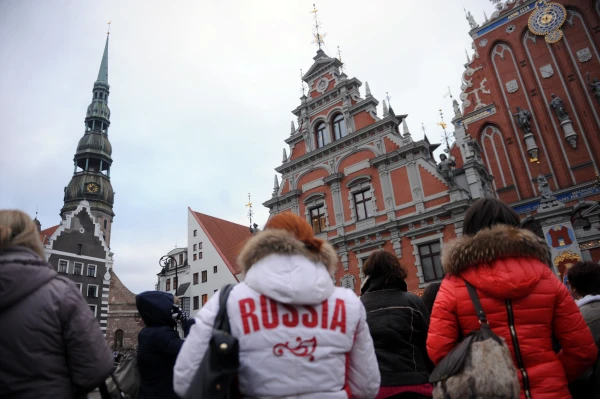

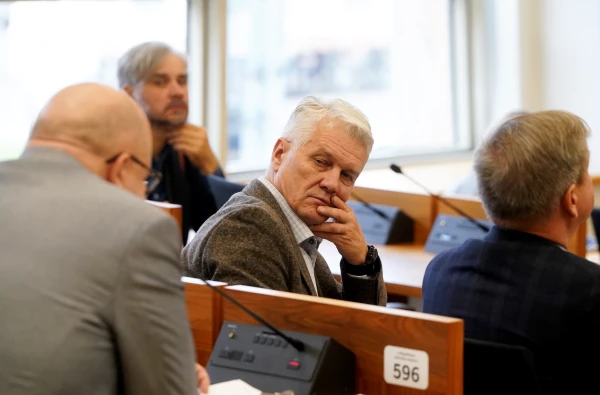
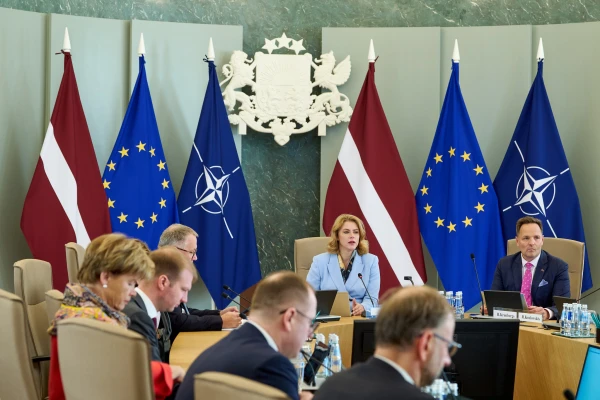






Leave a comment